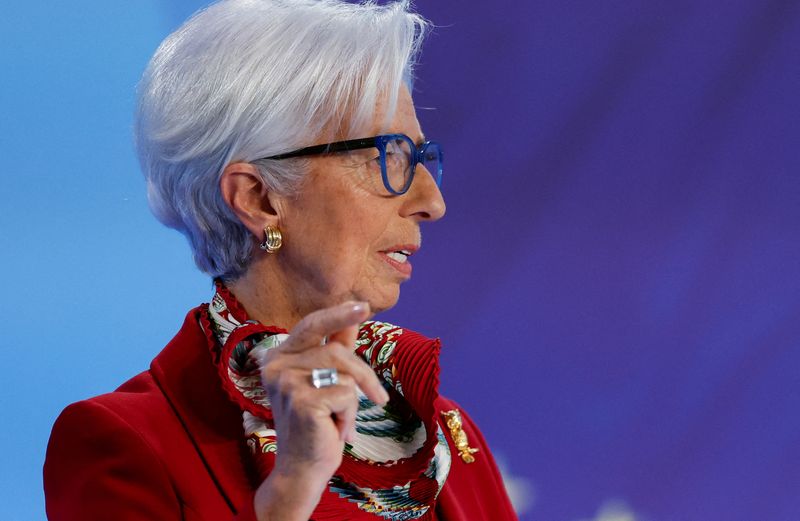By Francesco Canepa and Howard Schneider
FRANKFURT/WASHINGTON (Reuters) - Top central banks, faced with the risk of a fast-moving loss of confidence in the stability of the financial system, moved on Sunday to bolster the flow of cash around the world.
In coordination with central banks elsewhere, the U.S. Federal Reserve offered daily currency swaps to ensure banks in Canada, Britain, Japan, Switzerland and the euro zone would have the dollars needed to operate.
The change announced Sunday is a modest expansion of an existing program in which the Fed each week pays dollars to other major central banks in exchange for local currency. By doing so, the Fed, in effect offers low-risk short-term loans that ensure the world's major economies have adequate supply of the global reserve currency to meet local demands.
But the coordinated action on Sunday still struck a symbolic chord, echoing steps taken to offset the impact of the COVID-19 pandemic in 2020. It was perhaps even more analogous to efforts undergird the system after the U.S. housing market collapsed and stoked a global financial crisis and U.S. recession from 2007 to 2009.
The daily swaps, beginning Monday and extending until at least the end of April, will "serve as an important liquidity backstop to ease strains in global funding markets, thereby helping to mitigate the effects of such strains on the supply of credit to households and businesses," the Fed said in a statement.
The central bank swap lines have shown little sign of crisis so far, with foreign central banks holding outstanding swaps with the Fed for only $472 million as of March 15, versus $446 billion at the beginning of the pandemic and a peak of $583 billion in 2008.
But trouble among U.S. midsized lenders as well as the announcement Sunday of an emergency rescue of Swiss giant Credit Suisse (SIX:CSGN) Group AG have raised concerns about a looming and possibly contractionary credit crunch. Such a crisis could arise if the public lost faith in banks or banks lost faith in each other and started to limit their exposure to new loans.
The trouble at Credit Suisse in particular - one of the world's largest financial institutions - sent shock waves through global markets last week, raising fears of a new financial crisis and threatening to derail central bankers' efforts to tackle high inflation.
Credit Suisse found itself in dire need of liquidity last week until it was thrown a lifeline by its own central bank.
CONTAGION SCENARIOS
The coordinated move announced on Sunday will allow the central banks of the euro zone, Britain, Japan and Canada to each day offer seven-day dollar loans to their banks.
At least two major banks in Europe are examining scenarios of contagion possibly spreading in the region's banking sector and looking to the Fed and the European Central Bank to step in with stronger signals of support, two senior executives with knowledge of the deliberations told Reuters.
The Fed and Bank of England are due to hold meetings on interest-rate policy this week, when they will have to strike a difficult balance between their fight against inflation and worries about financial turmoil.
Analysts polled by Reuters expect both banks to raise rates by 25 basis points.

But LH Meyer economist Derek Tang wrote that the actions on Sunday suggested greater worry about "risk from financial contagion, and on the margin could put ... a rate hike by the FOMC on Wednesday in a bit more doubt."
"To announce joint action so decisively provides a sense of security but also reveals enough anxiety on their part that they feel the need for more insurance against bad outcomes."
